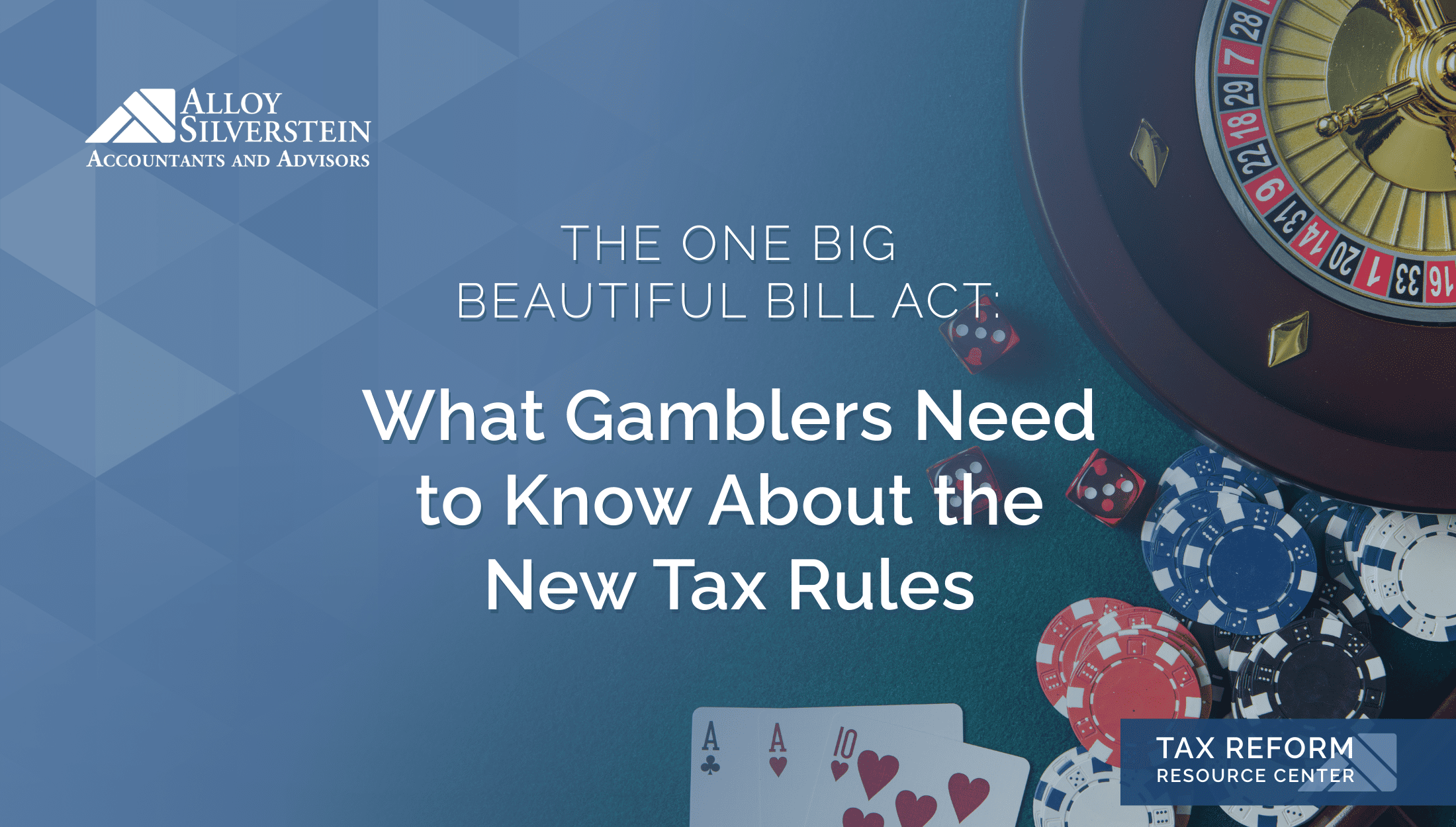
The One Big Beautiful Bill Act of 2025 (OBBBA) has introduced sweeping changes to the tax landscape, and one area seeing a significant shift is gambling taxation. Whether you’re a casual player or a professional gambler, these new rules could have a serious impact on your tax bill starting in 2026.
Beginning January 1, 2026, taxpayers will only be allowed to deduct 90% of gambling losses against winnings.
Here’s what that means in practice:
If you win and lose $100,000 in a single year, you won’t be considered “even.” Instead, you’ll still owe tax on $10,000 of winnings, despite technically breaking even.
This rule applies to both recreational and professional gamblers, making it one of the most significant changes in recent years.
For professionals, this new cap could be especially challenging. Many full-time gamblers already operate on thin margins, particularly in high buy-in tournaments or games with the toughest competition.
This change raises a critical question: Will professional gambling remain financially sustainable under these new rules?
Now more than ever, it’s important for professionals to analyze the numbers carefully and consider adjusting strategies to account for potential tax liabilities.
While the loss deduction cap is new, reporting thresholds remain mostly unchanged:
W-2G thresholds: $1,200 for slots, $1,500 for keno, and $600 for table games (under certain conditions).
1099-K threshold: Increasing to $2,000.
It’s important to note that the higher 1099-K threshold does not mean gambling distributions made through PayPal or other vendors are tax-free. It simply reduces the paperwork burden for some players.
Unsurprisingly, the gambling community, from high-profile players to Las Vegas industry leaders, has already voiced opposition. In response, lawmakers have introduced the FAIR Bet Act, aimed at rolling back these changes. For now, however, little progress has been made. Until further legislative updates, the new cap on gambling losses is set to take effect in 2026.
While the rules may still evolve, gamblers should take proactive steps:
Reassess your gambling activity to determine if changes to your play make sense.
Consult with a tax professional to forecast future liabilities and prepare for potential tax bills.
Stay informed as the situation develops. Congress may adjust or repeal parts of the law.
Taxes and gambling have always been a risky mix, but the OBBBA changes raise the stakes even higher. With new rules limiting deductions, gamblers, both casual and professional, need to think strategically about not just their wagers, but their tax planning too.
Want to understand how these changes could affect your tax situation? Contact Alloy Silverstein today for personalized guidance.

Associate Partner
Chris provides accounting, tax planning, and consulting services to professional athletes, family entertainment centers, and other businesses in the amusement and hospitality industry. He also aids clients in implementing cloud accounting solutions.
View Chris's Bio → Follow @AthleteCPA on Twitter →